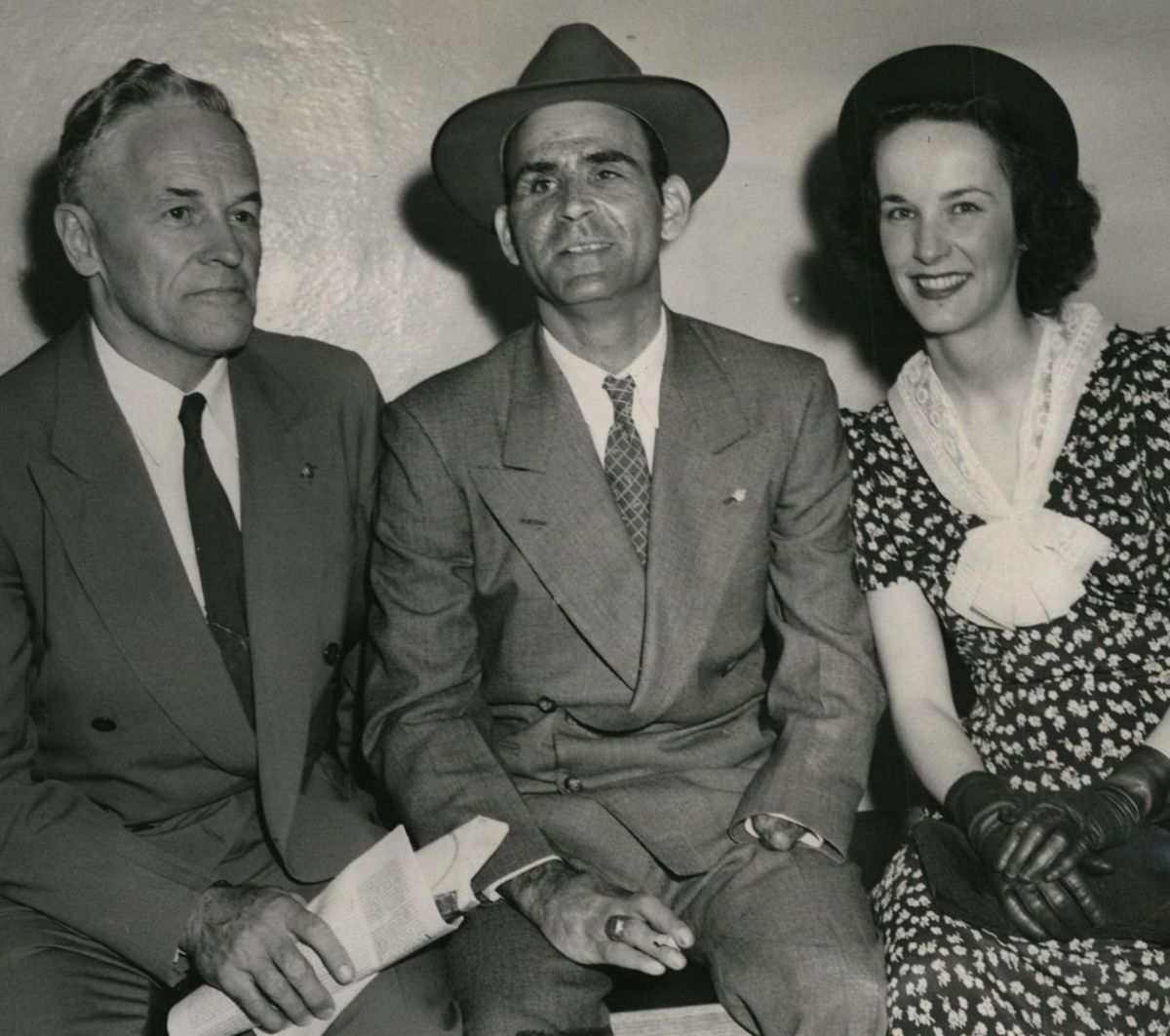The Christmas Bureau started with generosity toward GI wounded in World War II

The newspaper clippings are faded and yellow, but their message is familiar: Christmas is coming and donations are needed to help many of our neighbors have a good holiday.
The Christmas Bureau got its start in 1945, but it was much different than today. Donations were collected to help one man – Cpl. William M. Schwenk, a GI who lost his sight, one arm below the elbow and most use of his other hand in a mine explosion in Germany.
Schwenk didn’t live in Spokane, but local woman Janet Campbell met Schwenk when she was a Red Cross worker in North Wales during World War II. She told of his plight to Spokesman-Review reporter Margaret Bean, who rallied the community to donate to a “Bill’s Bond” fundraiser. It was a rousing success, raising thousands of dollars for the wounded soldier.
Schwenk visited Spokane in 1946 to thank the community and the newspaper published updates when he married and had a child.
In 1949, the community came together to raise $10,000 for the widows and children of 18 airmen stationed at Fairchild Air Force Base who died in a B-29 collision over Stockton, California.
Some of the women wrote letters of thanks. Mrs. Thomas L. Allen, of Henderson, Texas, wrote: “It is truly comforting and reassuring to know that someone cares, is sympathetic and wants to do something to show it. Your check conveyed not only a credit to my bank balance but conveyed also your outstretched hands in sympathetic concern. Here’s mine in grateful appreciation.”
Connie Young, of Spokane, wife of 1st Lt. James Young Jr., wrote: “I will be proud to raise my daughter in a community where there is such a feeling and fellowship. I feel Jim knows and appreciates your kindness as much as Kathy and myself.”
In the early 1950s, the yearly effort shifted to providing donations to the needy in the community, though organizers focused more on collecting donations of food and clothing rather than money. The Christmas Bureau apparently went on hiatus from 1952-54 for reasons that aren’t detailed in the newspaper archives.
The Bureau resumed in 1955, but the amount of money collected was under $50,000 for more than 20 years. The fund first topped $100,000 in donations in 1981 as the focus shifted away from collecting used clothes and toward providing food vouchers and toys. The yearly amount collected has risen and fallen with the economic tides, but 2016 was the 12th year in a row that the Christmas Bureau reached its annual fundraising goal.
The Volunteers of America and Catholic Charities have been decadeslong partners with The Spokesman-Review in organizing and operating the Bureau. The Salvation Army was also a partner in the effort for many years.
Throughout the decades, the stories of need have changed little. A mother is left alone after a divorce or the death of her husband and can’t afford Christmas gifts for her children. Or perhaps, one or both parents are unemployed and find themselves in need of help for the first time. Other parents work, but don’t make enough to provide a little something special for the holiday.
Always, there are the children. Children who won’t understand why Santa skipped their house or how there wasn’t enough money to buy a turkey or ham for the table. The children that prompt their parents or grandparents to stand in line for what can be hours in order to create a good Christmas celebration.
And enduringly, there are the donors, who range from a child draining her piggy bank to donate her allowance to a local company donating a check worth thousands of dollars. Every year, they have come forward to help those in need, aided by the volunteers who give their time year-round to make a special Christmas for people they meet only briefly.
It’s time, Spokane, to don your Santa hat and make Christmas happen once again.